Melbourne-based startup Ida Sports has engineered the world’s first affordable football boots for women, radically shifting gender inequality in sport.
For something that purports to be the ‘great equaliser,’ sports can be disappointingly unequal. Despite prolific advancements of women’s sport and the rise of FIFA-registered female players, there are still no football boots on the market designed for the female foot. Instead, sportswear retailers continue to cut corners by using the ‘shrink and pink’ method for their female range – that is, shortening men’s boots (based on the belief that female feet are scaled-down versions of men’s feet), dousing it in shades of magenta and marketing the product as ‘for her.’ As a result, even elite women playing for their country are expected to wear ill-fitted men’s boots or squeeze into plastic children’s boots, leading to injury and reduced participation. Female athletes are five times more likely to tear their ACL (anterior cruciate ligament) than their male counterparts with equivalent activity, and there is growing evidence to suggest that wearing the wrong footwear plays a part. For Melbourne-based startup Ida Sports, it matters if the shoe fits. Their female-specific football boot is innovatively geared for comfort and high performance and has gone from sketches tacked to a wall and experimentations in the kitchen to being worn by AFLW and W-League players in just a short 12 months.
“Women’s and men’s feet are fundamentally different. The revolution has already happened in running, but traditionally male sports don’t have that same level of care or attention to detail. Having boots made for our feet is an important part of making sports more safe, accessible and gender-inclusive,” begins Ida Sport’s co-founder Laura Youngson, who is a passionate STEM advocate, TED speaker and three-time Guinness World Record Holder. She spoke with us from Amsterdam (where she’s currently setting up their European office) about empowering women in sports, maintaining “relentless optimism,” and adapting to COVID-19.
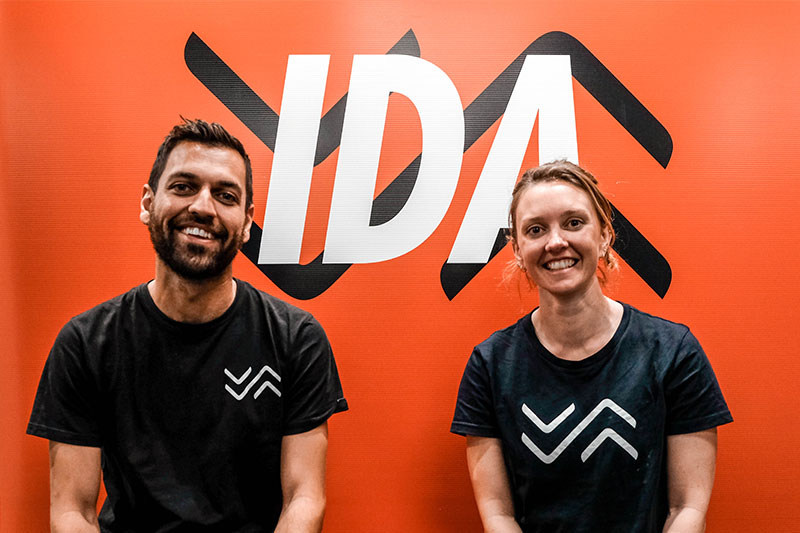
Laura Youngson’s Background
A British-born Australian, Laura was a keen sportsperson growing up and dabbled in various sports on an amateur level. After completing her physics degree at Wade Institute of Entrepreneurship in Melbourne, she managed VIPs and volunteer teams at the 2012 London Olympics, leaning into the diplomacy side of sport and how to bring people together. She subsequently worked in Brazil, Mozambique, Azerbaijan and the Middle East, but always held a desire to make her own mark somehow. Then in 2017, she led 40 women from 20 countries on a week-long trek to the top of Kilimanjaro, where they played the world’s highest altitude football match on a volcanic ash pitch as part of Equal Playing Field (EPF) – a non-profit initiative she co-founded to promote gender equality and sports development for girls globally. The elite team, consisting of Olympians, captains and national stars, endured biting conditions to prove the small but crucial point that women can do anything.
Laura achieved this record-breaking achievement wearing children’s boots and found the lack of women’s football boots extremely frustrating – a sentiment she realised was shared by her fellow athletes. “I started researching medical journals and realised that women’s feet are very different. Medically, women shouldn’t be wearing men’s or kids’ shoes, they should have their own set of shoes.” It was this frustration that kickstarted her latest adventure: co-founding Ida Sports in 2018 with Ben Sandhu, a former semi-professional cricketer and entrepreneurship lecturer who she met playing futsal (indoor football). “Ben was also getting really annoyed with the way women are marketed to, and the sexualisation of advertising. So he wanted to do something that really had a purpose,” explains Laura.
You might also like This Australian CEO is Using Data to End the Global Gender Violence Crisis
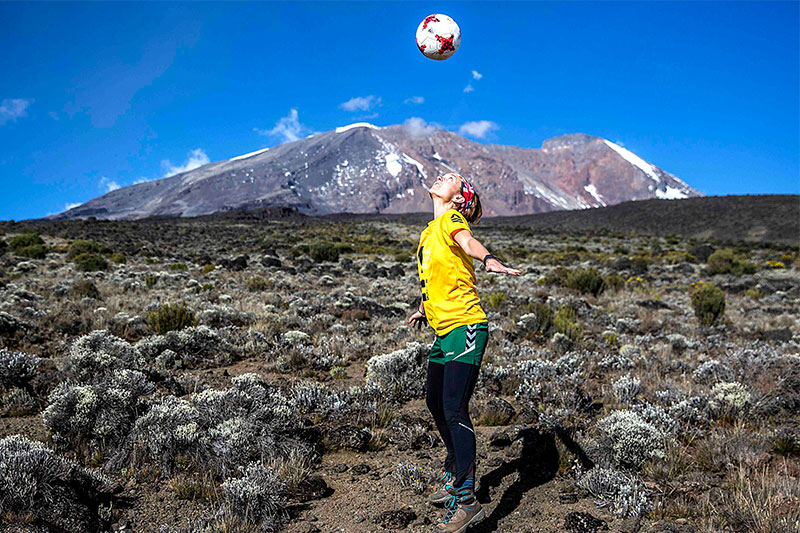
Ida Sports: Early Days & Challenges
Together, the pair started making their first prototype – affectionately named the ‘Frankenshoe’ – out of bits of silicon in Laura’s kitchen. They then started working with RMIT University’s advanced manufacturing precinct and went through numerous iterations using the latest industrial design and 3D printing techniques. “I think we called that second one the ‘Shoe Vuitton,’” Laura laughs. “That was really useful for testing out the stud patterns and where pressure was being distributed as well.” Their finalised version, the ‘Ultimate Women’s Football Boot,’ launched this February and is currently taking orders.
But, the journey was by no means smooth, and doors were often slammed in their face. “You get discouraged on almost a daily basis. We’ve been told numerous times that our products and our customer base are ‘niche’ because it’s women,” Laura recalls with a knowing smile. They almost considered making a men’s boot to help convince investors, but ultimately decided to stay true to their vision. “We had people sending us pictures of their blisters and that’s your motivation to dig deeper because you know that even if you haven’t found the right solution now, it’s something worth working on. At the end of the day, you just have to go back to what you know and hold onto that inner resilience – I call it ‘relentless optimism’ – that things are going to work out.” This ultimately proved to be rewarding as they ended up attracting like-minded mentors, partners and advisors who resonated with their idea. “We knew that certain VCs weren’t interested because they’re more focused on technology products, rather than physical products. So you keep going around until you find the people you really click with, and who understand what you’re trying to do and what market you’re in. Not everything works for everyone.”
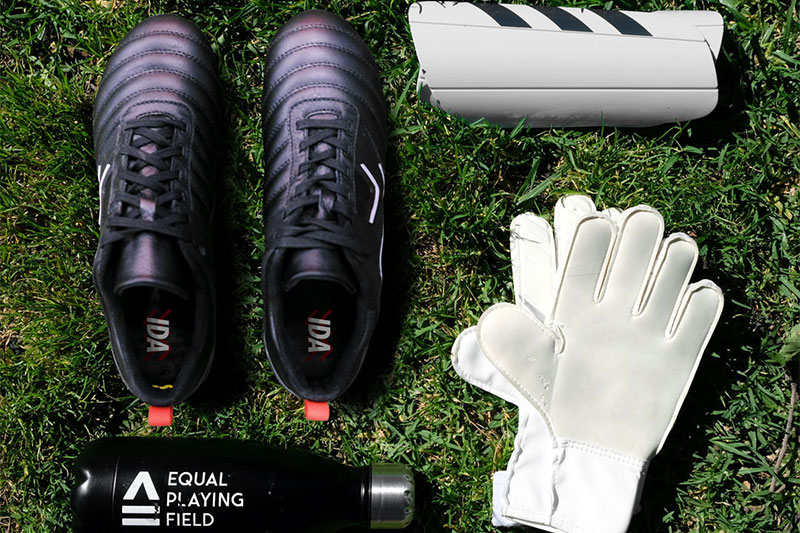
Customising Football Shoes to Women’s Feet
There are four anatomical differences that Ida Sports corrects for with their boot. Women generally tend to have a narrower heel, making it more prone to slippage and blistering; a wider forefoot prompting them to buy smaller shoes that fit the heel but squash in the toes; higher arches and, further up the skeleton, wider hips leading women to ‘pressure load’ their feet differently. To accommodate this, they’ve added extra support around the arch/midfoot using KPU plastic and altered the stud configuration. Additionally, they’ve opted for sustainably-sourced premium kangaroo leather around the nose, which is known for its lightness, strength and flexibility. “One of the things we initially asked was, ‘How do we make the materials more sustainable and still have great performance?’ So that’s why we settled on kangaroo leather because it’s a byproduct of the meat industry in Queensland and it’s also super strong and easy to mould.” The widespread praise they’ve received is a testament to the validity of their mission and hard work. “We’ve had players say things like, ‘I thought football boots were supposed to be uncomfortable.’ So I think the biggest feedback has been that everyone says they’re really comfy – and that’s what we’re aiming for. Football boots aren’t meant to be a painful experience.”
Yet, the question remains: if male and female feet are so anatomically distinct, why haven’t bigger brands developed women’s football boots yet? For Laura, this gap speaks to a historical legacy of underrepresentation, underreporting and undervaluation in male-dominated sports and the impact this has had on what’s considered ‘normal’ by marketers and female athletes alike, such as chronic blistering and taped toes. “If you look at the prize money for the Men’s World Cup compared to the Women’s, it’s not even on the same page. So it would make business sense to market just for men. Also, women’s football in the UK was banned for 50 years until 1971 and this has a knock-on effect. We’re only just now seeing a generation that gets professional and semi-professional contracts. So I think it’s a weird mix of historical legacy, slowness to innovate and brands just not seeing a problem until it’s pointed out – and that’s where we’re able to drive the market as well as change it.”
Nevertheless, she remains optimistic about progress in sport and brings up the example of rugby. “They don’t call it the Men’s World Cup or the Women’s World Cup. It’s just the World Cup and they made a policy decision to talk about the sport like that. In Laos, there are actually more women playing rugby than men because it’s a new sport so there are no historical gendered roles in the country.” She also sees great potential in more inventive sporting events like the mixed relays, featuring two men and two women per team. “I think when you can get to a point where you have more sports like that, where you’re using all genders, each with different strengths and more tactics, it gets much more interesting. Ben and I obviously played mixed football and it’s such a brilliant game because you have to play as a team, otherwise you can’t win.”
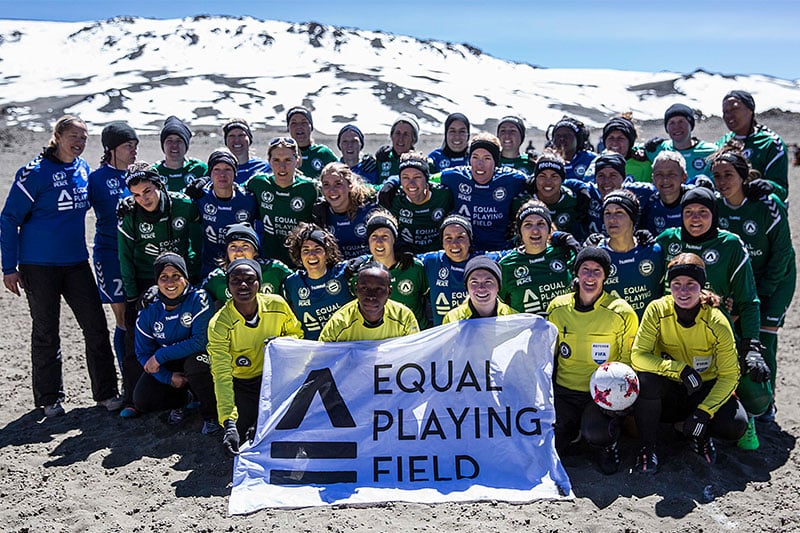
Ida Sports: Adapting to COVID-19
Like most businesses, Ida Sports has needed to reevaluate their practices in response to the coronavirus outbreak. “Before, we’d make loads of sales by going out to clubs and getting players to try on our boots first-hand because once people try them on, they love them. Now we’ve shifted fully online and spend more time building brand awareness by shipping our boots to different elite players because everyone’s bored at home and just waiting for the season to start.” Given the postponement of the Tokyo Olympics, COVID-19 has also enabled them to spend more time on R&D for their next products. “We’re in a very lucky position that boots are not perishable, so we’re able to pivot what we’re doing a little in order to be stronger for when everything does open again.” Laura counsels entrepreneurs to be more creative during this time. “It’s a really tricky time for businesses, but it also presents lots of opportunities to look at your business afresh and ask how you can market slightly differently from home.”
Looking ahead, Ida Sports hopes to continue growing their customer base in Australia, as well as Europe and the US where inquiries have increased. A new futsal boot is also in the works, which they anticipate launching ahead of the next season. “Because of coronavirus, who knows what the future holds. We’re just waiting for the new season to hopefully start in September and for England to finish off the Women’s Super League. In the meantime, we’re trying to stay fit and healthy and talk to our supporters to ensure they’re doing the same.”
Related Articles
Powerpants by Bham: Australian Social Enterprise Takes a Stand Against Gender Violence
Time’s Up on the Male Monopoly of Coding
The New Savvy Empowers 100M Women To Gain Financial Independence
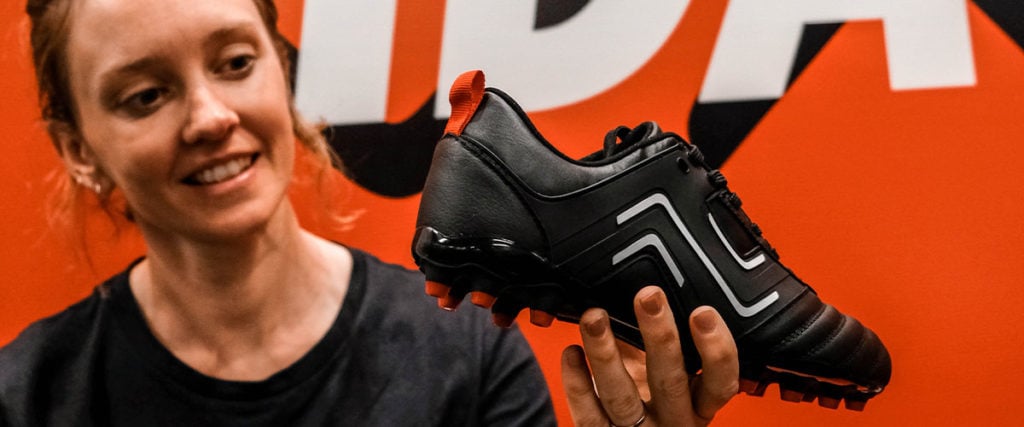
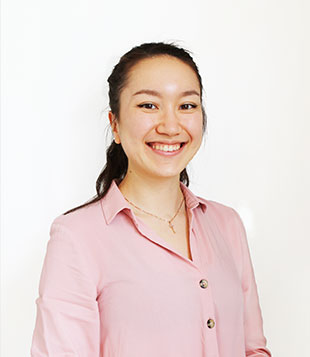




Gender Inequality in Sport